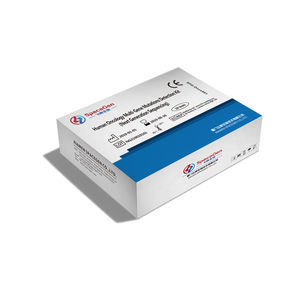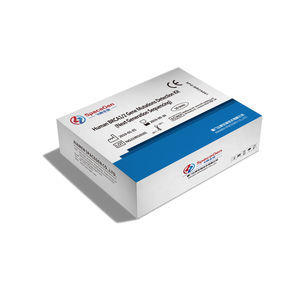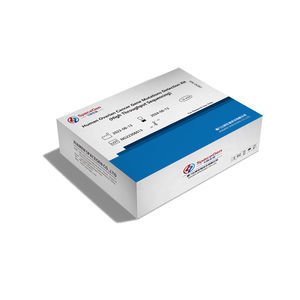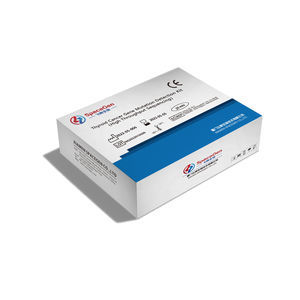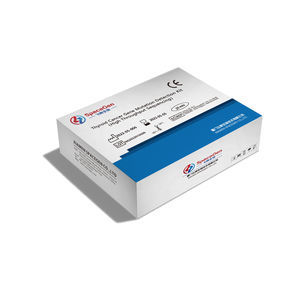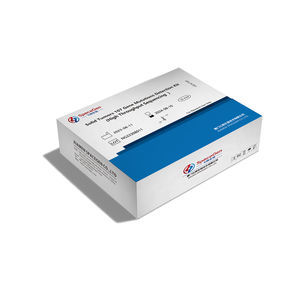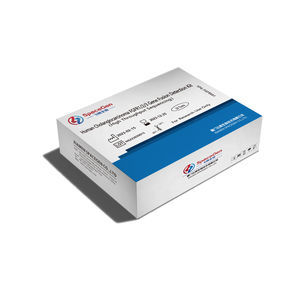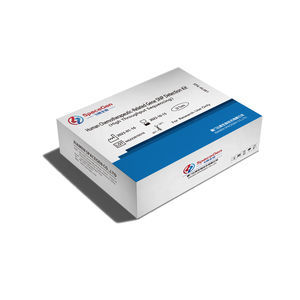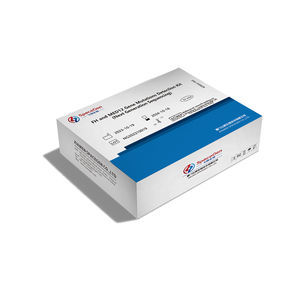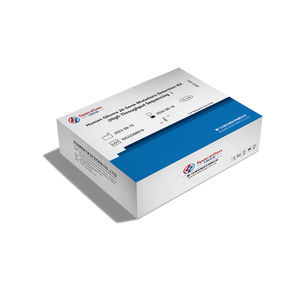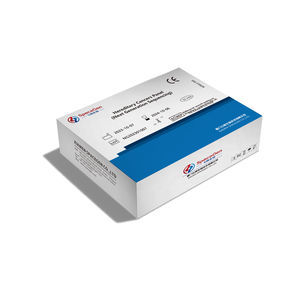

- Company
- Products
- Catalogs
- News & Trends
- Exhibitions
Colorectal cancer detection kit Lynchcan®for lynch syndromeoncologyEPCAM
Add to favorites
Compare this product
Characteristics
- Applications
- colorectal cancer, for lynch syndrome
- Application field
- oncology
- Tested parameter
- EPCAM, PMS2, for MLH1 gene, for MSH2 gene, for MSH6 gene
- Sample type
- tissue
- Analysis mode
- immunohistochemistry, for sequencing
- Result display time
4 h
Description
Lynch syndrome (LS) is a high penetrance, autosomal dominant susceptibility syndrome.The pathogenesis of LS is single allele germline mutation of mismatch repair genes (especially MLH1, MSH2, MSH6 or PMS2), or epigenetic silencing of MSH2 caused by germline deletion in adjacent EPCAM gene. LS can cause colorectal cancer and tumors in other organs (including endometrium, ovary, stomach, small intestine, liver and gallbladder, upper urethra, brain and skin). The cancer risk of LS carrier is higher than that of normal people.
NCCN guidelines recommend that all patients with newly diagnosed colorectal cancer should be screened by immunohistochemistry or microsatellite instability detection of four MMR proteins (MSH2, MSH6, PMS2, MLH1) in tumor tissue.For dMMR patients identified by immunohistochemistry, it is suggested to further detect germline mutations of protein expression deletion genes.For patients with microsatellite instability determined by MSI method, germline mutation detection of MSH2, MSH6, PMS2, MLH1 and EPCAM genes is recommended.
American Gastroenterological Association Institute Guideline on the Diagnosis and Management of Lynch Syndrome
DETECTION SIGNIFICANCE
1. Confirmed diagnosis of LS is based on germline testing.
2. Mutant BRAF V600E suggests sporadic CRC.
APPLICABLE PEOPLE
dMMR/MSI-H tumor patient.
The relatives of confirmed LS patient.
FEATURES & ADVANTAGES
1. Ease of Use: Based on the patent technology RingCap®, Library preparation in 2 steps.
3. High Sensitivity: Sequencing depth can be above 500 x, the sensitivity can reach up to 5%.
Catalogs
No catalogs are available for this product.
See all of SPACEGEN‘s catalogsRelated Searches
- Assay kit
- Blood assay kit
- Immunoassay assay kit
- Plasma assay kit
- Infectious disease detection kit
- Analysis medical software
- Molecular test kit
- Whole blood detection kit
- Respiratory infection test kit
- Clinical assay kit
- Optical assay kit
- Fluorescence assay kit
- Viewer software
- Real-time PCR test kit
- Research assay kit
- Laboratory software
- Windows medical software
- Oncology test kit
- Laboratory detection kit
- Cell assay kit
*Prices are pre-tax. They exclude delivery charges and customs duties and do not include additional charges for installation or activation options. Prices are indicative only and may vary by country, with changes to the cost of raw materials and exchange rates.

